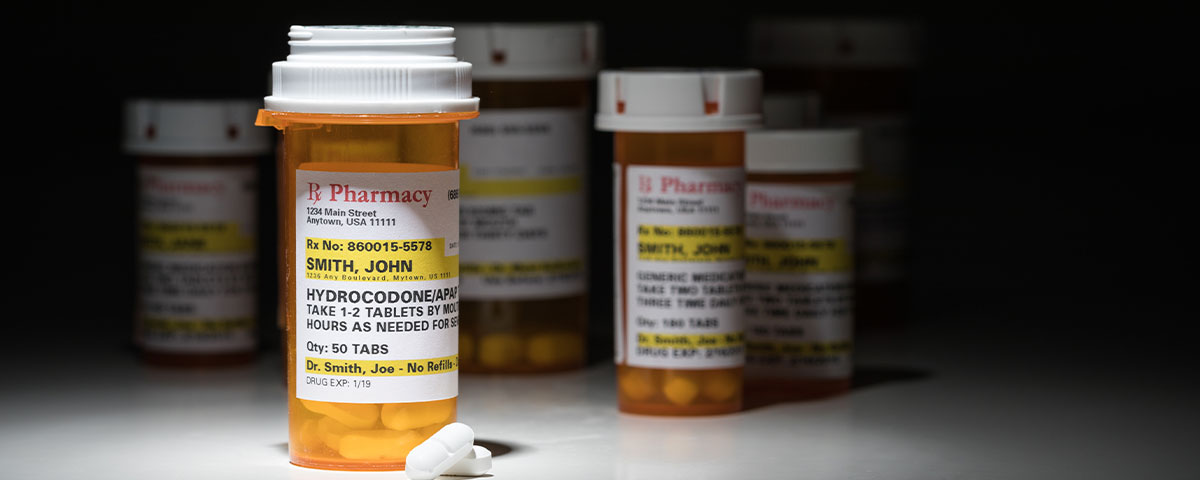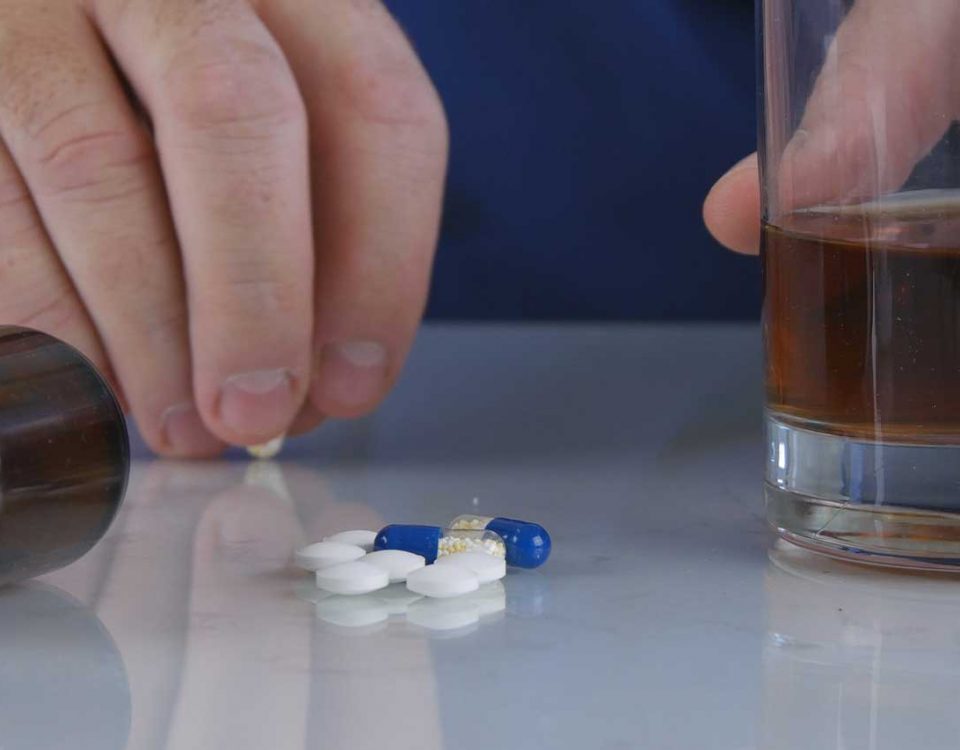Roughly 21% to 29% of patients prescribed opioids misuse them, and between 8% and 12% of patients develop an opioid use disorder.1
In 2019, nearly 50,0000 people in the United States died from opioid-related overdoses.1 These statistics are no surprise, however, considering the current opioid epidemic that’s resulted from the over-prescription and abuse of these medications. Today, our Florida drug detox center is focusing on hydrocodone and why people abuse it. Can you get high off hydrocodone? If so, what does it feel like?
What Is Hydrocodone?
Hydrocodone is one of the several opioids that are used to treat severe and chronic pain. Also referred to as narcotics, opioids like hydrocodone are only legally available by prescription in the U.S. and are controlled substances.
A person may be prescribed hydrocodone or any of its other brand names like Vicodin, Norco, or Lortab. Each of these variations contains hydrocodone as well as the non-opioid painkiller acetaminophen.
Hydrocodone is available in both immediate-release and extended-release formulations, depending on the severity of the person’s condition and their situation. For example, while people who have just undergone surgery may be prescribed immediate-release hydrocodone for short-term treatment, those with chronic pain may receive extended-release formulations.
Unfortunately, as with other opioids, hydrocodone has a high potential for abuse and addiction. These medications have led to a national drug crisis that has been riddled with cases of addiction, overdoses, and fatal overdoses.
Can Hydrocodone Get You High?
Yes, hydrocodone can get you high. It’s believed that, like other drugs of its class, hydrocodone binds to opioid receptors located in the central nervous system (brain and spinal cord.) When this occurs, the medication raises the person’s tolerance for pain, alleviating their discomfort.
When used in a normal dose, hydrocodone is safe and effective. But when taken in larger doses, the person may experience a rush of euphoria, sedation, and relaxation. But why does hydrocodone get you high? What’s the science behind it?
In addition to alleviating pain, hydrocodone can also produce a high when taken in large doses because it triggers a rush of dopamine in the brain. This is a chemical that nerve cells use to communicate with each other and plays a big role in how we feel pleasure and reward. Additionally, instead of this dopamine being recycled for later use, large amounts remain in the brain, producing a high.
What Is a Hydrocodone High Like?
A hydrocodone high is associated with sedation, drowsiness, and euphoria. A hydrocodone high is like a sudden rush of happiness, pleasure, and a sense of well-being.
Once the effects of a hydrocodone high wear off, the person may feel drowsy or sleepy and relaxed. People who abuse hydrocodone may also nod off randomly because of the sedation caused by the medication.
However, in addition to the pleasurable hydrocodone high feeling, other less desirable hydrocodone high effects include:
- Stomach pain
- Drowsiness
- Dizziness
- Sedation
- Tiredness
- Dry mouth
- Muscle tightening
- Back pain
- Ringing in the ears
- Swelling in the feet, legs, or ankles
- Difficulty urinating
- Painful urination
- Trouble sleeping
- Uncontrollable shaking
The severity of these side effects also depends on the dose taken and how the person uses hydrocodone. Certain forms of administration, such as snorting hydrocodone, can produce a faster and more intense high than taking it as a pill. Thus, many people with hydrocodone addictions may administer the medication in dangerous ways to experience the most intense high possible.
How Much Hydrocodone to Get High?
Vicodin and other brand names of hydrocodone come in three doses: 5 mg, 7.5 mg, and 10 mg. Usually, most patients take their doses every 4 to 6 hours. These smaller doses are most common for immediate-release formulations of hydrocodone, which are used as needed and short-term.
The extended-release form of hydrocodone, Zohydro, is usually prescribed in doses including 10 mg, 15 mg, 20 mg, 30 mg, 40 mg, and 50 mg. Normally, patients only take this form of hydrocodone once every day because its effects last for 12 hours.
To prevent severe side effects, doctors may start their patients off with small doses of hydrocodone and slowly increase their dose as time progresses. When taken correctly, the person may no longer experience euphoria or a high when they take their medications. They will simply feel pain relief.
It’s when people take larger doses of hydrocodone than prescribed, take hydrocodone in ways other than what was recommended to them, or when they mix hydrocodone with other drugs and alcohol that they may get high. However, not only do these tactics produce a high, but they also increase the individual’s risk of overdosing.
Not only can you get high off hydrocodone, but you can also overdose on it. Opioid overdose can be life-threatening, with the most fatal symptom of an opioid overdose being respiratory depression. This occurs when a person fails to breathe well enough to get enough oxygen to their brain and organs, causing these organs to shut down.
Why Do People Abuse Hydrocodone?
People may abuse hydrocodone and other opioids for a variety of reasons. For one, people who are frequently exposed to drug abuse growing up are more likely to develop an addiction later on in life.
Addiction is also often developed starting from a young age, particularly during the adolescent and teen years. During this age bracket, many kids begin using drugs to fit in, socialize, manage their mental health, or simply to experiment.
Mental illness is also a common contributing factor of addiction, as many people with disorders like depression, anxiety, or PTSD use drugs to escape from their symptoms and emotional pain. This is also why many people with addictions also have a dual diagnosis or co-occurring disorder.
Furthermore, opioid addiction, in particular, often occurs in people who were prescribed these medications for their pain and eventually began to misuse them. Opioids like hydrocodone are particularly addictive drugs, and any form of misuse or abuse can quickly result in developed tolerance, physical dependence, and addiction.
When patients become dependent on their opioids, they may experience withdrawal symptoms when they stop using them. The symptoms encourage further drug use, as patients may rely on these drugs to avoid withdrawals.
Because withdrawals play such an important role in hydrocodone addiction, our substance abuse treatment center in Stuart, FL, usually recommends that patients begin their treatment with an opioid detox to safely get through the withdrawal phase of recovery. This helps them fight drug cravings and makes the remainder of their treatment programs easier to complete.
Opioid Addiction Treatment
Long-term hydrocodone abuse can lead to addiction as well as other physical and mental repercussions. Drug addiction, in general, can also impact every area of your life, including your relationships, career, schooling, and more.
There’s also a very real and dangerous risk of overdose that people who abuse these drugs take. Millions have died of opioid overdose during the drug epidemic, and no one is exempt from this risk.
If you’ve found yourself abusing your opioid medication, this is your sign to get professional help. Banyan Treatment Centers Stuart offers opioid and prescription drug addiction treatment for those struggling with hydrocodone abuse.
To learn more about hydrocodone addiction, detox, and our Florida drug and alcohol treatment, call Banyan Stuart today at 888-280-4763.
Related Readings:









